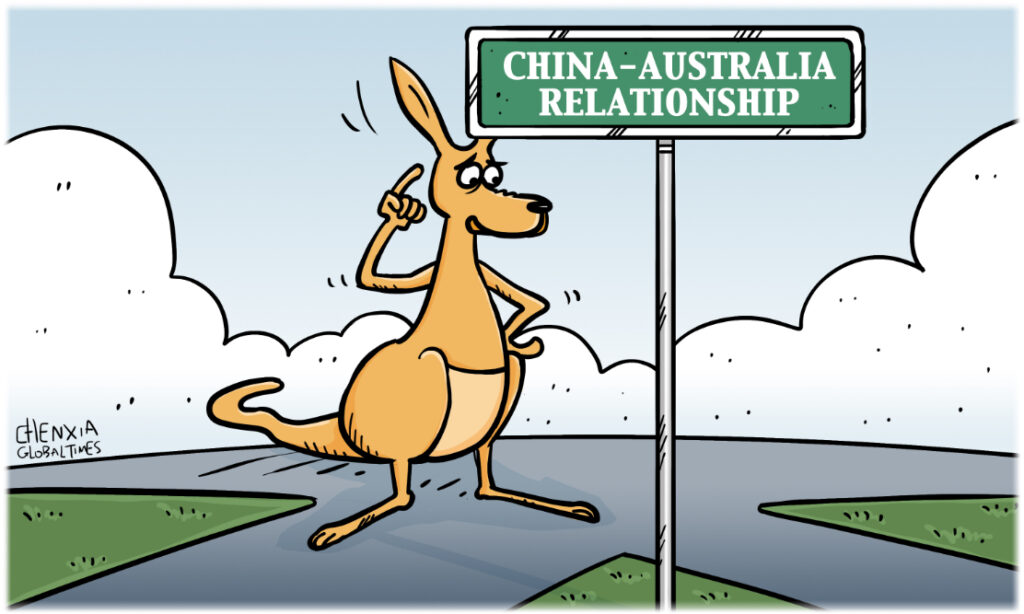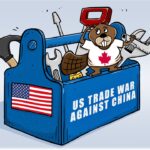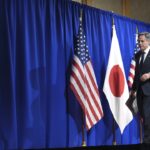AUKUS, the trilateral security partnership between the US, UK and Australia, has always been a center of contradiction between Beijing and Canberra. As the knots in the dispute between China and Australia in areas such as trade are slowly untied, if Canberra cannot tackle the issue concerning the AUKUS well and allow itself to continue to be hijacked by the US’ policy, this pact is likely to be an impediment to the China-Australia relations.
According to Reuters on Monday, the Joe Biden administration will send a high-level delegation to Australia this week for a series of meetings to review the progress of the AUKUS.
The US and Australia, are currently accelerating the AUKUS build-up. Last month, President Biden reaffirmed the country’s commitment to the security pact when he met the visiting Australian Prime Minister Anthony Albanese who expressed his hope that the US Congress would pass legislation related to the AUKUS this year.
The US delegation’s visit to Australia comes at a time when China’s relations with the US and Australia are on the upswing: Albanese just wrapped up his visit to China on Tuesday as the first Australian prime minister to visit China in seven years, while Chinese and US leaders are expected to meet on the sidelines of the Asia-Pacific Economic Cooperation Leaders’ Summit in San Francisco, almost one year after their last face-to-face meeting.
Although the delegation’s Australia trip cannot hinder the general trend of China-Australia relations moving toward further improvement, it will undoubtedly do no good to China-Australia relations if Australia continues to play an active role as a pusher in the construction of the AUKUS.
The cooperation under the AUKUS framework is based on shared ideology and political consensus between the US and its core allies, aiming to strengthen deeper exchanges in the defense sphere. However, the trilateral alliance, in fact, implies bloc confrontation and Cold War thinking, intending to coordinate with the US’ Indo-Pacific Strategy to constrain and suppress China.
China, among other regional countries, has expressed its deep concerns regarding the AUKUS since its founding. According to Chinese military expert Song Zhongping, apart from the issue of possible nuclear proliferation, China is also quite worried that AUKUS will become an important cornerstone for building an Asia-Pacific NATO. In particular, the three AUKUS countries are seeking to recruit more allies and partners in the region into the pact.
“In the context of the US treating China as a hypothetical, systematic rival, AUKUS, once it expands, will become an efficient and pragmatic anti-China military mechanism in the Asia-Pacific region,” Song told the Global Times.
Australia’s geographic proximity to China and its pivotal role in the US’ Indo-Pacific strategy require Washington to keep a firm grip on Canberra. To solidify its strategic alliance with Canberra, Washington has to up the ante. Therefore, the US even gives the green light to Australia over sensitive defense and intelligence sectors, such as nuclear submarine technology, that often appear to be “off-limits” in Washington’s cooperation with other allies and partners, Song noted.
Through AUKUS, the US hopes to make Australia serve its hegemonic strategy. It promises so-called security guarantees to Canberra, but becoming cannon fodder for Washington will be the fate of Australia instead of actually benefiting from the partnership. Therefore, Australia must be highly vigilant about this, asking itself: Is it really a wise decision to rashly fulfill US interests and threaten China’s security amid warming China-Australia relations?
The bilateral ties between China and Australia should be developed based on the interests of the two countries, independent from the enhancement of the US-Australia alliance. If issues involving the US-Australia military alliance, such as AUKUS, are not resolved, it means that Australia is attempting to develop its relationship with China according to its ties with the US. This will make it difficult for the China-Australia relationship to develop sustainably. And as the US continues to hijack Australian politics to a large extent, it will only complicate the China-Australia ties and inject more uncertainties into the bilateral relationship.
(Global Times)




